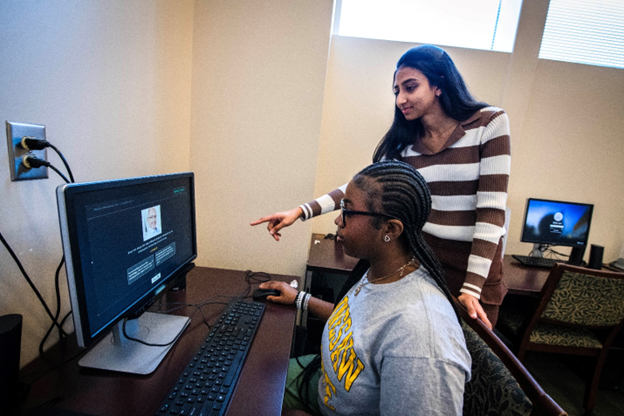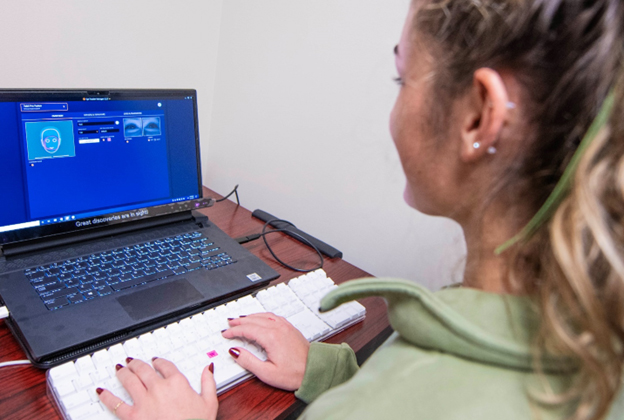Norman J. Radow College Researchers Awarded Russell Sage Foundation Grant
KENNESAW, Ga. (Sep 19, 2024) — Kennesaw State University’s (KSU) Norman J. Radow College of Humanities and Social Sciences Department of Psychological Science (DPS) celebrates the recent award of a $75,000 Russell Sage Foundation grant. The grant funds research being conducted by Drs. Tracie Stewart, Anisah Bagasra, Tim Martin, Ordene Edwards, and Jennifer Willard, who together are studying evidence-based solutions for reducing racial and ethnoreligious bias and determining whether these solutions can yield long-lasting change.
The grant provides important financial support for research and further strengthens KSU’s position as a respected R2 institution in the region. Participant incentives facilitate diverse voices being heard, while dedicated research time fosters in-depth exploration and analysis. The collaborative, interdisciplinary approach that is integral to this project includes KSU faculty specializing in social, cognitive, community, and educational psychology as well as KSU International Conflict Management doctoral students, who bring additional perspectives to the study and the analysis of the resulting data. Engaging doctoral students in this work further reinforces KSU’s mission to cultivate the upcoming generation of researchers in the social sciences.

Lead researcher Dr. Tracie Stewart explains that their project targets “long-term, meaningful change, a reduction in implicit bias that endures long after participants have completed the training. Achieving long-lasting change has been elusive in many research studies. However, our anti-bias training technique has shown initial promise on this front, and this grant will help us take this progress even further.”
Through this project, these KSU researchers are exploring whether it is possible to weaken deeply ingrained implicit biases woven throughout our culture. Can any interventions be robust enough to leave a lasting, meaningful mark? Certainly, the pervasiveness of implicit biases in our society would make such change a daunting challenge. But this team of researchers is finding that not only might this change be possible but that intensive cognitive retraining shows considerable promise for enduring, substantive change.
Dean of the Norman J. Radow College of Humanities and Social Sciences, Catherine (Katie) Kaukinen, congratulated the team on the award and expressed pride in the growing body of work Radow College faculty are producing. "This research exemplifies Radow College's unwavering commitment to ensuring our faculty have the support and resources to apply for and secure as many grant opportunities as possible so they can achieve their research goals. The Department of Psychological Science consistently expands the boundaries of our understanding, and we are excited to see what outcomes result from their dedication and hard work."
This impactful grant was made possible in large part because of the KSU Radow College seed grant previously awarded to Drs. Bagasra and Stewart. Their initial project provided the springboard for developing the compelling proposal that captured the Russell Sage Foundation's attention. This success story highlights the power of interdepartmental collaboration and strategic resource allocation in propelling cutting-edge research forward.

With the successful completion of the initial project, the DPS team unlocks the possibility of a subsequent renewable grant from the Russell Sage Foundation. This potential for continued funding would enable the team to pursue groundbreaking advancements in bias reduction research. Dr. Stewart's prior experience with the foundation and the team's recent publication in the Journal of Applied Social Psychology further solidifies their position as leading experts in this field.
The researchers behind this bias reduction study are challenging the traditional one-size-fits-all approach to bias training. Their Situational Attribution Training paradigm trains participants to consider situational explanations for behaviors that might otherwise have been automatically and unintentionally judged stereotypically. With funding from the foundation, they will be implementing this cognitive retraining across multiple short sessions, instead of relying on a single training session, as is often the case with anti-bias interventions.
Dr. Stewart explains, "We're the first out there to use this multi-session intensive cognitive retraining approach in the study of bias reduction. We're really excited about this approach because there's research in the clinical literature showing that multi-session cognitive retraining can be a powerful tool in treating depression, substance use disorder, and in other areas previously thought to be intractable.”
The Russell Sage Foundation's mission of tackling societal challenges through social science research is in alignment with the focus of this research and with KSU's unwavering commitment to creating a research environment that fosters innovative scholarly study that bridges the gap between theory and practice. The findings have the potential to impact communities far beyond Kennesaw, Georgia, by providing actionable solutions for mitigating the impacts of bias in both professional and personal settings.











